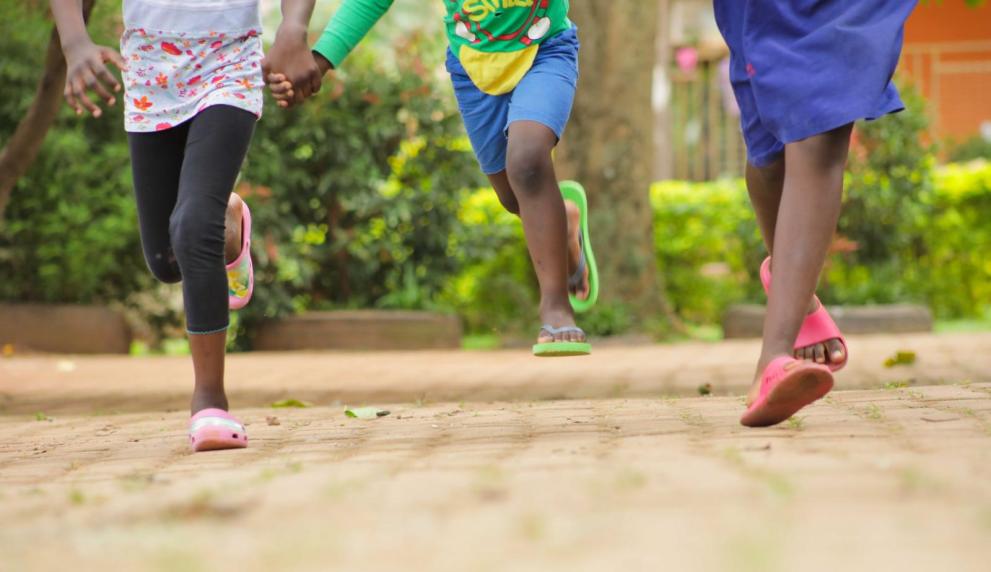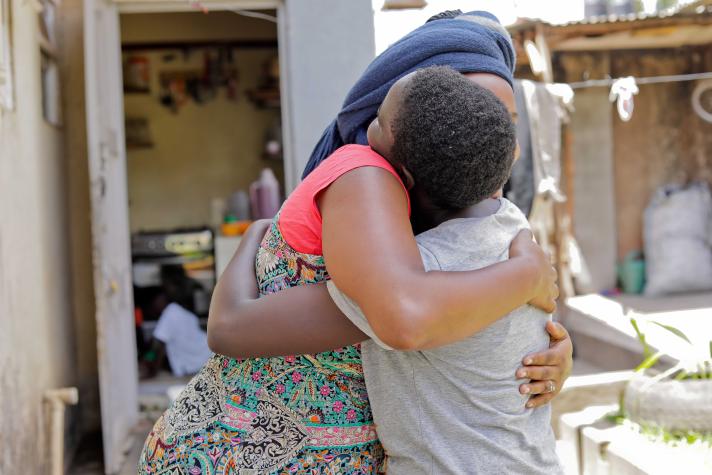
Demeku was about to turn 14 when she was repatriated after being trafficked in Qwara Woreda, in the West Gondar Zone of the Amhara Region. She had been raped and left traumatised in a forest where the local police found her. They took her to a shelter run by Mahibere Hiwot From Social Development (MSD), a local civil society organisation (CSO) dealing with child protection and migration.
North and West Gondar Zones are areas where child trafficking is widespread. The towns of Metema and Humera on the Ethiopian-Sudanese border are known for their highly productive sesame cultivation, which lures seasonal workers. This is why children from neighbouring areas where economic conditions are dire, like Demeku, often migrate there to find jobs to support themselves and their families.
According to Abebaw Teshome, MSD manager, hundreds of children migrate in search of work every year via Metema, taking the north-western route. ‘Demeku’s case is not an exception,’ he explains. ‘Brokers and smugglers lie to the children and their families, making false promises to entice them away from home. However, once the children arrive at the farm towns, the reality is far from what they had been promised. They are exposed to extreme labour exploitation, often receiving just food and no pay for their work.’
Deciding for the best interest of the children
Thanks to the Better Migration Management (BMM) programme, referral procedures were established in the Amhara Region in 2019. As a result, more than 6,500 victims of trafficking and migrants, including 2,400 children, have benefitted from protection services.
In 2020, specific procedures for dealing with unaccompanied and separated children were implemented to offer them support. Workshops and training courses were held to provide relevant actors with the necessary technical knowledge. ‘That was very helpful and gave us guidance on how to manage the reintegration of these children,’ says Azemeraw Chekol, a child protection expert from the Bureau of Women and Social Affairs in West Gondar Zone.
‘We started by setting up the first Best Interest Committee in Gendewuha,’ explains Azemeraw. ‘The committee is composed of representatives of all relevant actors concerned with supporting unaccompanied children, including the Bureau of Women and Social Affairs, the Bureau of Labour and Skills, the police, the judiciary and CSOs, such as MSD. The aim was to form a panel responsible for balancing all the relevant factors in a child’s case in order to identify and decide on the best option for referring the child to protection services and/or reuniting them with their family.’
Support starts with food and a place to sleep
The Committee’s primary target is Ethiopian children travelling without adult family members who may be runaways, children who have left home with the support and encouragement of their parents and children who have ended up in the hands of traffickers. ‘Public transport hubs are the usual places where we find young migrants trying to figure out how to return home,’ says Worku Tilahun, a police officer from West Gondar Zone. ‘We also find children stranded in the middle of nowhere crying and not knowing where to go after running away from farms and houses where they had been held captive and exploited. We report the cases to our departments and hand the children over to the nearest CSO or the Bureau of Women and Social Affairs, who then refer them to the nearest shelter which provides services including food, a place to sleep and counselling in a safe environment.’ In order to gain the child’s trust, a designated care giver (of the same gender when possible) is assigned from the start.
Once the child has settled, the Committee members evaluate the situation to determine what is in the child’s best interest. They then proceed to trace the family and assess its status, including economic and behavioural issues and the attitude of family members towards the child. Officer Tilahun adds: ‘Once the decision is made, one of us accompanies the children, along with a social worker, either to their family home or to a youth home to make sure they get there safely without falling into the hands of brokers or smugglers along the way.’
Abebaw is proud of the results: ‘In 2021 alone, MSD managed to reunite some 200 trafficked children with their families through the best interest process’.
Background
The Better Migration Management (BMM) programme, financed by the European Union through the EU Emergency Trust Fund for Africa and the German Federal Ministry for Economic Cooperation and Development (BMZ), aims to improve migration management in the Horn of Africa region. It improves the protection of vulnerable migrants, in particular children, and their access to protection facilities and services. In phase I, the programme supported the Ethiopian government in developing protection systems and promoted coordination between state actors and civil society organisations, notably through the establishment of referral procedures and the development of standard operating procedures. The current phase (Phase II) involves the design of systematic measures and capacity building for service providers and government actors, with special attention to the specific needs of unaccompanied and separated children. The roll-out of the validated child protection procedures started in the main migration hotspots, namely West, Central and North Gondar Zones in the Amhara Region.
Details
- Publication date
- 27 July 2022
- Region and Country
- Horn of Africa
- Ethiopia
- Thematic
- Improved migration management
- Partner
- GIZ

